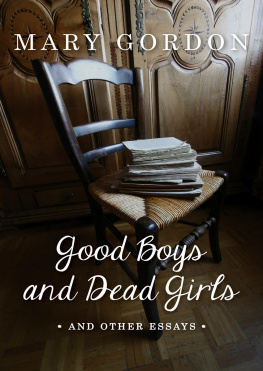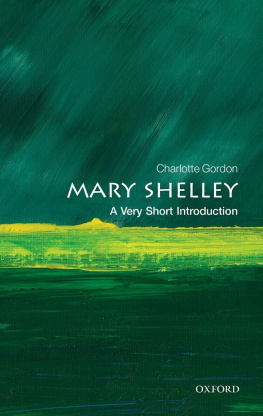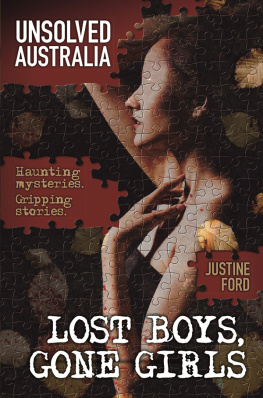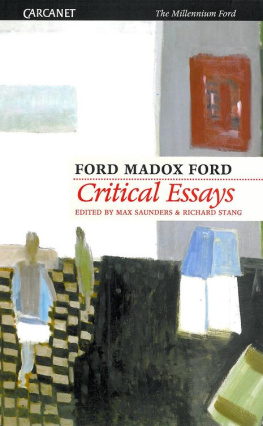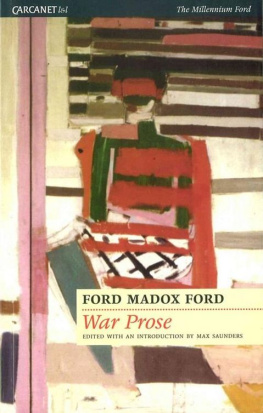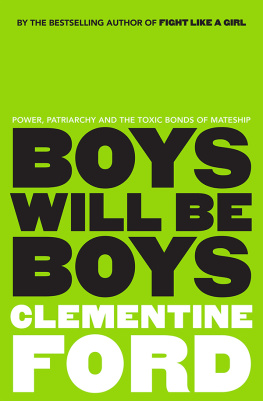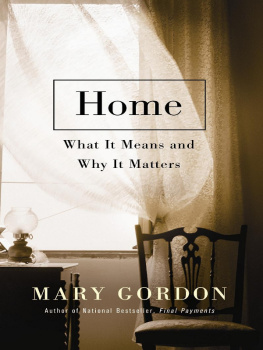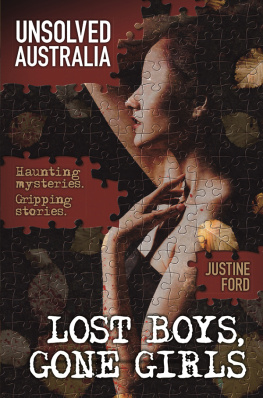Good Boys and Dead Girls
and Other Essays
Mary Gordon

To Philip Hamburger
I
ON WRITERS AND WRITING
Good Boys and Dead Girls
I TELL YOU THEY were not men after spoils and glory; they were boys riding the sheer, tremendous tidal wave of desperate living. Boys. Because this. This is beautiful. Listen. Try to see it. Here is that fine shape of eternal youth and virginal desire which makes heroes. That makes the doings of heroes border so close upon the unbelievable that it is no wonder that their doings must emerge now and then like gunflashes in the smoke, and that their very physical passing becomes rumor with a thousand faces before breath is out of them, lest paradoxical truth outrage itself.
Light in August
The truth, beauty, and heroism that Faulkner invokes in this description have inflamed the hearts of generations of male American writers. Faulkner is in fact describing the rash attempt of a group of boy soldiers to destroy Grants stores in a small Southern town. The raid ends in a series of unnecessary and foolish deaths, whose effects reverberate through three generations. It is a member of a third wounded generation, Hightower, who calls up the image of the beautiful marauding boys as he broods on the castration of Joe Christmas by the fanatical frustrated soldier Grimm. The blood of one boy is on the hands of another, but the blood has been shed to avenge the honor of a murdered woman. Beauty. Truth. Heroism. Civilization is no place for a boy.
The image of the moving boy has been central in American writing. Motion is the boys genius. He must be able to move. Move freely. Quickly. The boy on his strong legs cuts through the world, through time, constricting space, the accidents of birth, class, limitation, law. He wriggles out from under the crushing burden of fate. And fates agent, the embodiment of unmoving weight, is female. She who does not move, who will not move, who cannot move. Who wont allow the boy to move.
The innocent boy killers. Let us concentrate for the moment on the first word: innocent. In poetry, the word, or its nominal, made its mark indelibly twice. First in Donnes A Valediction Forbidding Mourning: Movement of earth brings harms and fears / Men reckon what it did and meant. / But trepidation of the spheres / Though Greater far, is innocent. And then there is Yeatss famous passage from A Prayer for My Daughter: How but in custom and ceremony can innocence and beauty be born? Is innocence a passive state, as Donnes lines would suggest, a natural freedom from something, a marvelous lack, the adorable minus that makes possible the immaculate whole? Or is it, as Yeats would suggest, a product of a willed isolation, willed by someone (possibly not the innocent himself or herself), a conscious holding back or being held back from the world?
The ambiguities involved in the idea of innocence create problems when we try to define the word. The OED defines it as doing no evil; free from moral sin or guilt, pure, unpolluted, usually (in modern use always) implying unacquainted with evil, sinless, holy. These definitions skirt, of course, the difficulties about innocence, the problem of consciousness or volition. The OED allows the possibility that innocence is almost a physical state: pure, unpolluted, a state almost like virginity, a state whose terms are bodily. A passive state. But if we define innocence using words like doing no evil and include the terms moral and sin, consciousness and volition are implied; the body and the mind are in some communion.
In the depiction of innocence in fiction, there seems to be a real split between Americans and Europeans. For English and European writers, the emphasis is placed on the innocent as doing no evil; as free from moral sin. For Americansand this is not surprising given our Puritan pastinnocence seems to be a state of nonpollution, which can endure even through behavior that ought, in ordinary contexts, to be polluting.
I am thinking of four European innocents: Flicie in Flauberts Un Coeur Simple, Prince Mishkin in The Idiot, the Country Priest in Bernanoss Diary, and Portia in Elizabeth Bowens The Death of the Heart. Two of these characters are women and two are saints, so it should not be surprising that they are removed from the center of power. All of these characters lack ambitionthat so American virtuewhich may be a way of saying that they lack the belief in change. And all of them suffer more than they cause suffering. They keep trying to do good in the world; their sorrow is disproportionate, unearned, and unjust.
Writers of American fiction have a habit of describing innocence as if it were a state of election removed from behavior, impervious to the state of defilement resulting from bad acts. When the American innocent is punished for what he has done, the punishment is seen as metaphysically incorrect, the inevitable result of the pressures of civilization. This kind of American innocent, typically a young boy, first appeared in Melvilles Billy Budd.
Billy Budd, the handsome sailor, epitomizes life, youth, health, and unselfconscious, broad, instinctual behavior. His world is the world of free movement, skilled, deft action; he is at home with the elemental, the natural. In the world of language, however, he is clumsy and mute: he is entrapped by words, the coin of civilized and settled life. Melville says of him: to deal in double meaning and insinuations was quite foreign to his nature. Double meanings and insinuations are intrusions by language into the world of action. Billy is the victim of language. Claggarts accusation, that Billy tried to mutiny, has no basis in the actual world, in the world of action: it is simply a fabric of language. At the moment of his accusation, Billy both realizes the inadequacy of language and is paralyzed by it. His tongue stops and will not serve him. But his arm is ready. His arm can move. He strikes and kills Claggart. The movement of his arm is the medium of justice. He is destroyed by law, a product of language. The law requires that Billy be punished for the murder of the one who plotted against him. But the plot was motivated by the frustration of instinct, the stoppage of male physical desire. (The homosexuality at the center of Billy Budd makes Billy a complicated figure in terms of gender relations. Desire is all male in Billy Budd, and in this way it serves as only a partial paradigm for later American fiction, which is, of course, primarily heterosexual.) Billy is hanged because of the civilized notion that the good of the individual cannot take precedence over the good of the group.
In his book The American Adam, R. W. B. Lewis talks about the distance between the innocent hero and the world he must cope with, a strategic gap he cannot bridge. Billy Budd bridges the gap by an act of irrational, heroic forgiveness. He forgives his accusers, particularly the reluctant, Pilate-like captain, and in his utter submission to his own death, he rises above fate. But Billy lives in the nineteenth century; his twentieth-century brothers will not be, as Melville says of Billy, like the animals, without knowing it, practically a fatalist.
The story of America is the story of the escape from fate. Europeans crossed the ocean in order to be free of it; the movement from the small town to the city is a move out of the grip of fate. The freedom and autonomy that America is meant to stand for is the attempt to define the self outside of the bruising authority of fate. In the language of American mythology, fate is that over which the self has no control; the ultimate limiter of individual freedom. It is the villain in the American dream. This dream is overwhelmingly male in its tone, and romanticas Leslie Fiedler noted thirty years agoabout the pure relation between males in contrast to the muddled, corrupt relation between males and females. The female is the counterpart of fate in that her condition is fatalistic in the natural weakness that makes her susceptible to rape and vulnerable to death in childbirth. This natural weakness means that she requires protection, shelter, assistance. The boy on the run cannot stop to shelter a woman from violation or to assist her in the pangs of childbirth. In speaking of Cooper, Leslie Fiedler said that, in American literature, the only good woman is a dead woman. The habit didnt end with the

